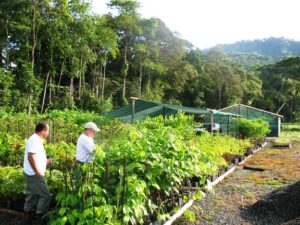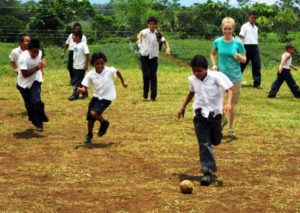Unless you’ve been dwelling in a cave, you’ve probably heard of Costa Rica’s status as a prime eco- vacation destination. Whether you’ve experienced the joys first-hand, or read about it in the news, this Central American nation is renowned for its mind-blowing wildlife, stunning biodiversity and breathtaking natural wonders. White and black-sand beaches – check. Active volcanoes – check. Sultry jungles and glowing blue waterfalls – check. Above and beyond these bragging rights, Costa Rica has accomplished some pretty amazing feats since gaining autonomy from Spain. Here are a few cool (and perhaps lesser known factoids) that may pique your interest.
Click here and book your luxury villa today!
-

Check Here For More On Costa Rica Education is free for all citizens – In 1869, the government of Costa Rica made education both free and mandatory for all residents. Thanks to a public education system that is rated one of the best in all of Latin America, the country boasts a literacy rate of 96%.
- Small on size; big in biodiversity – From coast to coast, Costa Rica encompasses a mere 19,730 square miles, about the size of West Virginia. Despite this, the country contains nearly 5% of the world’s total biodiversity.
- Ticos are happy people – Costa Rica continues to outrank other nations on the Happy Planet Index (HPI) and has been rated number 1 for two straight years.
- No standing army since 1949 – Throughout Central America, Costa Rica has maintained the longest standing democracy since abolishing its army in 1949.
- On the way to becoming entirely carbon neutral – The country is making every effort to be carbon neutral by 2021. In 2012, the Environmental Performance Index (EPI) ranked Costa Rica as the planet’s 5th Greenest Country.
-

More On Costa Rica While On Your Family Vacation Here Indigenous tribes make up 1% of the population – Though most Costa Ricans are of European/ Spanish descent, indigenous groups including the Cabecar, Boruca, Chorotega, Guaymi, Kekoldi and BriBri account for 1 percent of the country’s 4.8 million residents.
- More than 25% of the land is protected – The Costa Rica government has always been progressive when it comes to environmental conservation, and has dedicated more than a quarter of the nation’s terrain as biological reserves, wildlife refuges and national parks.
- Volcanically active – Arenal may be taking a small siesta (it used to be considered one of the world’s ten most active volcanoes), but that still leaves Poas, Rincon de la Vieja, Turrialba and Irazu. An estimated 200 volcanic formations are scattered throughout the nation, many of which date back more than 60 million years.
- Generates nearly all energy via renewable sources – Hydroelectric energy accounts for almost 80% of all energy consumption in Costa Rica. Windmills generate another 18%.
- Praised for its modern health care system – Costa Rica has consistently received accolades for its excellent private and public health care, which was rated by the UN within the top 20 worldwide. The average life expectancy for Ticos is 79.3 years.

 +1 888-818-2097
+1 888-818-2097
 +506 8932-4731
+506 8932-4731